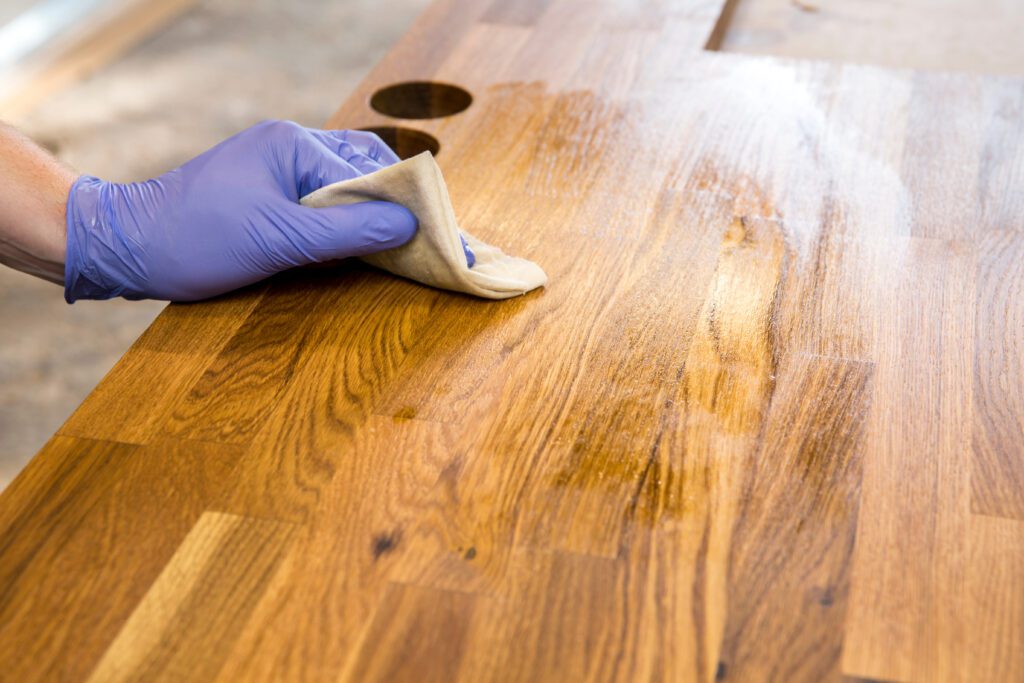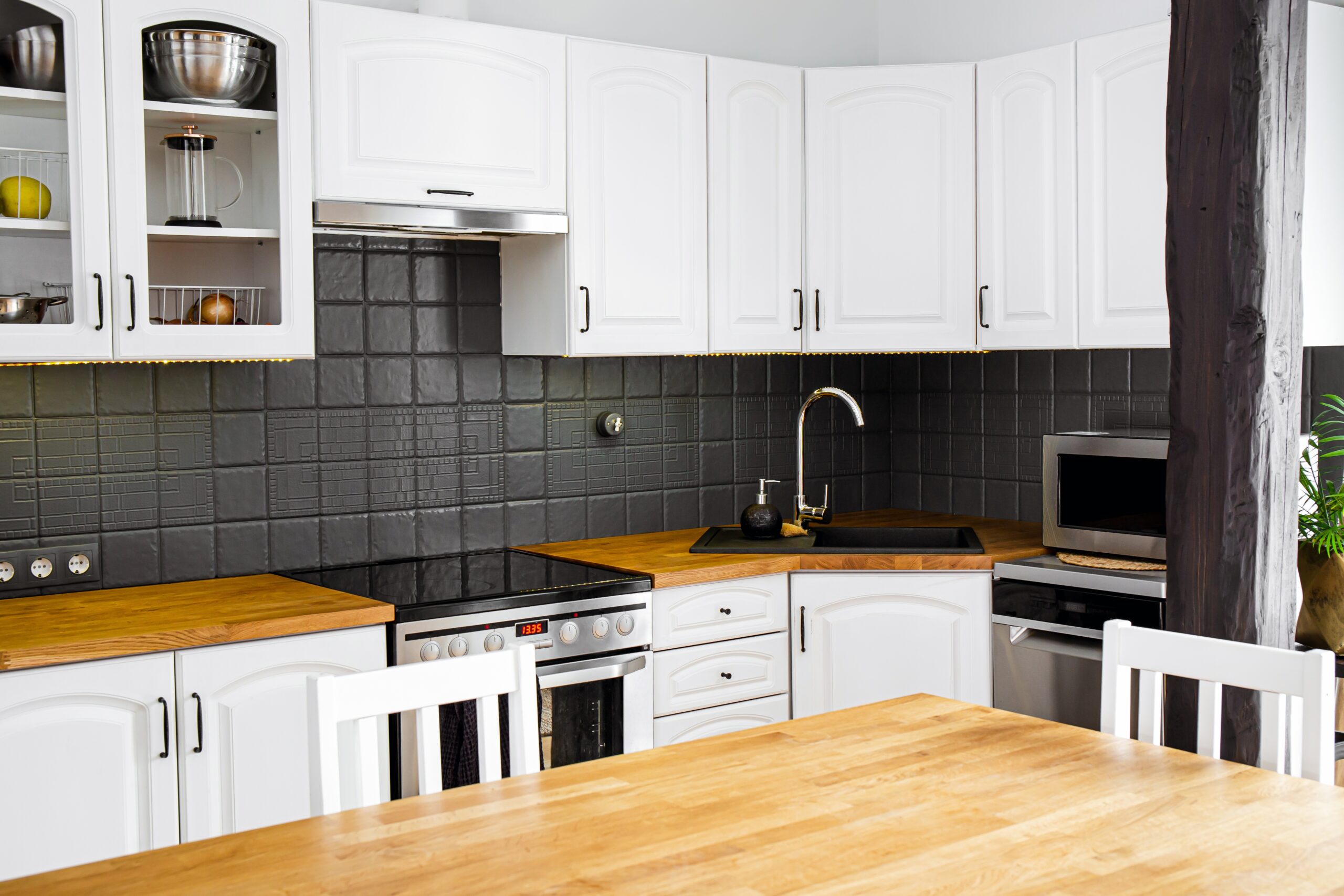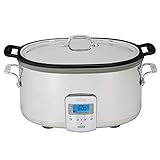Introduction:
Homeowners and interior designers alike are constantly debating what the best surfaces are for kitchens. Let’s explore the pros and cons of Butcher Block Countertops and how they can add value to your home. Renowned for their warm, rustic appeal and unmatched functionality, these countertops have carved a niche in the realm of kitchen design. We’re in the midst of a major renovation on my daughter’s house and she has chosen to install butcher block countertops with new green cabinets. It’s going to look amazing, we’ll update this post when we get to the installation phase of that project.
Yet, like any material, they come with their own set of advantages and drawbacks. From maintenance requirements to durability, there are several factors to consider before making your decision. We’ll delve into the nitty-gritty of these aspects to provide a balanced perspective.
Join us as we explore the fascinating journey of these countertops, weighing the pros against the cons. Whether you’re considering a kitchen remodel or simply curious, this comprehensive analysis will serve as your guide. Stay tuned as we unfold the many layers of butcher block countertops.
What Are Butcher Block Countertops?
Butcher block countertops are a popular choice for kitchens due to their natural, warm aesthetic and durable surface. They’re crafted from straight cuts of wood that are glued together to create a sturdy workspace. The type of wood used can range from maple to cherry, walnut, or oak, offering a variety of looks to match any kitchen decor.
One major pro of butcher block countertops is their affordability. Compared to other countertop materials like granite or quartz, butcher block is generally less expensive. In some installations as much as 50% less expensive than granite. Additionally, they’re easy to install and can be a DIY project for handy homeowners.
Another advantage is their durability. Butcher block countertops can withstand heavy use, and if they do get scratched or dented, they can be sanded and refinished to look like new.
However, there are some cons to consider. Butcher block countertops require regular maintenance to keep them looking their best. This includes oiling them to prevent drying and cracking. They’re also not as resistant to heat as stone countertops, so you’ll need to be careful not to place hot pots and pans directly on the surface.
Furthermore, butcher block can be susceptible to water damage if not properly sealed, especially near the sink area. This means they may not be the best choice for those who want a low-maintenance countertop.
Despite these potential drawbacks, many homeowners find the natural beauty and functionality of butcher block countertops to be worth the extra care they require. They offer a unique, warm touch to any kitchen, making them a popular choice for those seeking a rustic or farmhouse style.
Pros of Butcher Block Countertops
Butcher block countertops are a popular choice for homeowners who want a warm, rustic feel in their kitchen. One of the biggest advantages is their natural beauty. The rich, wood grain provides a unique aesthetic that can’t be matched by other materials.
Another benefit is the durability of butcher block countertops. They are incredibly strong and can withstand heavy use, making them perfect for busy kitchens. Plus, they are easy to maintain and can be sanded and refinished to remove any scratches or stains, ensuring they look new for years to come.
Butcher block countertops are also environmentally friendly. They are made from renewable resources and are biodegradable, making them an excellent choice for those who are concerned about their environmental footprint.
Additionally, these countertops offer a functional work surface for cooking and food preparation. Unlike other countertop materials, you can directly chop and prepare food on them, eliminating the need for cutting boards.
As mentioned, butcher block countertops are a cost-effective choice making them a great option for those on a budget.
Despite these benefits, it’s important to note that butcher block countertops do require regular maintenance to keep them in good condition. However, with proper care, they can be a beautiful and practical addition to any kitchen.
Cons of Butcher Block Countertops
While butcher block countertops can add a warm, rustic touch to your kitchen, they do come with certain disadvantages. One of the primary issues is maintenance. These countertops require regular oiling to prevent drying out, cracking, or warping.
Another concern is their susceptibility to scratches and dents. Unlike granite or quartz countertops, butcher block is softer and can be easily damaged by knives or heavy pots. This can lead to an uneven surface over time.
Moreover, butcher block countertops are not heat resistant. Placing hot pots or pans directly on the surface can cause burn marks or even warping.
Hygiene is also a significant potential drawback. Since wood is porous, it can harbor bacteria, especially if not properly cleaned and maintained. This can be a potential health risk in a kitchen environment.
Lastly, these countertops are not suitable for all types of kitchens. They can warp or crack in high humidity environments, making them a poor choice for coastal homes or regions with high rainfall.
Despite these drawbacks, many homeowners still prefer butcher block countertops for their unique aesthetic appeal. However, it’s essential to consider these factors before making a final decision.
How to Maintain Butcher Block Countertops?
Maintaining butcher block countertops requires a consistent regimen of cleaning and oiling. Regular cleaning with mild soap and warm water is essential to prevent the growth of bacteria and keep your countertop looking pristine. Remember, harsh chemicals can damage the wood, so avoid them at all costs.
One of the main pros of butcher block countertops is their natural ability to resist bacteria when properly maintained. However, a notable con is the potential for water damage. To prevent this, it’s vital to oil your countertop regularly. This not only enhances the wood’s natural beauty but also provides a protective barrier against moisture.
When it comes to oiling, use a food-safe mineral oil or a butcher block conditioner. Here’s a simple process to follow:
1. Apply the oil liberally and let it soak in for at least 20 minutes. We recommend Rust-Oleum Butcher Block Oil
2. Wipe off the excess using a soft, clean cloth.
3. Repeat this process once a month or whenever the wood starts to look dry.

Scratches and nicks are common with butcher block countertops, but they can be easily sanded out. After sanding, remember to reapply oil to the sanded area. It’s also worth noting that these countertops can be refinished, which is a significant pro compared to other countertop materials that require replacement when worn out.
While butcher block countertops require a bit more maintenance than some other materials, their warm, natural look and durability make them a popular choice for many homeowners.
Are Butcher Block Countertops Durable?
Butcher block countertops are known for their warm, rustic appearance that adds a touch of nature to your kitchen. But how do they fare in terms of durability?
One of the significant pros of butcher block countertops is their inherent strength. Crafted from solid wood, they are designed to withstand heavy use. This makes them a popular choice in high-traffic kitchens. They’re also relatively easy to maintain. Regular oiling can keep the wood looking fresh and protect it from damage.
However, there are some cons to consider. Butcher block countertops are prone to scratches and dents, especially if not properly maintained. They can also be damaged by heat and moisture, which can warp the wood over time. Moreover, they may require more frequent maintenance compared to other countertop materials like granite or quartz.
Despite these potential drawbacks, many homeowners find the charm and warmth of butcher block countertops outweigh their maintenance needs. They offer a timeless aesthetic and, with proper care, can last for many years. However, understanding the pros and cons of butcher block countertops can help you make an informed decision that suits your lifestyle and kitchen usage.
Can Butcher Block Countertops be Refinished?
Absolutely, one of the significant advantages of butcher block countertops is their ability to be refinished. When wear and tear start to show, or if stains and scratches become too prominent, you can sand down the surface and apply a fresh coat of oil or sealer. This process restores the countertop’s original beauty, giving it a fresh, new look.
However, it’s important to note that refinishing is not always a walk in the park. It requires time, effort, and a certain level of skill. In some cases, you might need to hire a professional, adding to the overall cost of maintaining your countertop.
- Refinishing can also be seen as a disadvantage because it needs to be done periodically, depending on the usage and care of the countertop.
Butcher block countertops also require regular sealing to prevent water damage and bacterial growth. This is a crucial step in the refinishing process and should not be overlooked.
The ability to refinish is a unique characteristic of butcher block countertops, setting them apart from other countertop options like granite or quartz, which cannot be easily refinished. This feature contributes to the longevity and sustainability of butcher block countertops, making them a popular choice among eco-conscious homeowners.
Remember, proper care and maintenance can extend the life of your butcher block countertop, reducing the need for frequent refinishing. Regular cleaning, avoiding prolonged exposure to water, and using cutting boards can help maintain its appearance and functionality.
Cost of Butcher Block Countertops
When considering a kitchen renovation, the cost of butcher block countertops is a significant factor. These countertops, known for their durability and aesthetic appeal, can vary in price depending on several factors.
The type of wood used can greatly affect the cost. Hardwoods like oak and maple tend to be more expensive, while softer woods like pine are generally cheaper. The thickness and size of the countertop also play a role in the overall cost.
Another factor is the finish. A standard oil finish is usually less expensive, but a varnish or lacquer finish, which offers more protection against stains and scratches, can add to the cost.
The installation process is another cost determinant. If you’re a DIY enthusiast, you can save on labor costs. However, professional installation is recommended to ensure the longevity of the countertop.
Despite these costs, butcher block countertops offer several benefits. They are:
- Eco-friendly, as they are made from renewable resources.
- Easy to clean and maintain, especially with regular oiling.
- Heat-resistant, making them a great choice for kitchens.
However, they also have some drawbacks. They can be prone to scratches and dents, and they require regular maintenance to prevent drying and cracking.
While the cost of butcher block countertops may be higher than some other materials, their unique blend of functionality and beauty can make them a worthwhile investment for many homeowners.
Butcher Block Countertops vs Granite
When it comes to kitchen renovations, the choice between butcher block countertops and granite can be challenging. Butcher block countertops, crafted from hardwood, offer a warm, welcoming aesthetic. They’re versatile, fitting well into both rustic and modern kitchen designs. With proper maintenance, including regular oiling and sealing, these countertops can last for decades. The ability to sand and refinish butcher block countertops extends their lifespan, making them a cost-effective choice.
However, there are some drawbacks to butcher block countertops. They’re prone to scratches and stains, and can be damaged by heat. They also require regular maintenance to prevent drying and cracking.
On the other hand, granite countertops are renowned for their durability and heat resistance. They are less prone to scratches and stains, and require less maintenance compared to butcher block countertops. Granite countertops also add value to your home, making them an investment.
Yet, granite countertops come with their own set of challenges. They are more expensive than butcher block countertops, and their heavy weight often requires additional structural support. Installation can be tricky and usually requires professional help.
Choosing between butcher block and granite countertops ultimately depends on your budget, lifestyle, and aesthetic preferences. Both options have their own unique pros and cons, making this decision a personal one.
Final Thoughts on Butcher Block Countertops
To conclude, butcher block countertops offer a unique, warm aesthetic that can enhance any kitchen design. Their durability and the option to refinish them over time make them a sustainable choice. However, they do require a certain level of maintenance to keep them in good condition.
The cost of butcher block countertops can vary, but they often present a more affordable alternative to granite countertops. Yet, it’s important to consider the pros and cons of both materials before making a decision.
The future promises exciting developments in kitchen design and materials. As trends evolve, the appeal of butcher block countertops may continue to grow, particularly for those seeking a blend of functionality and natural beauty.
Remember, the best countertop for your kitchen depends on your lifestyle, budget, and personal taste. Consider all the aspects we’ve discussed in this post when making your decision. Stay informed about the latest trends and developments in kitchen design to make the most informed choice for your home.




